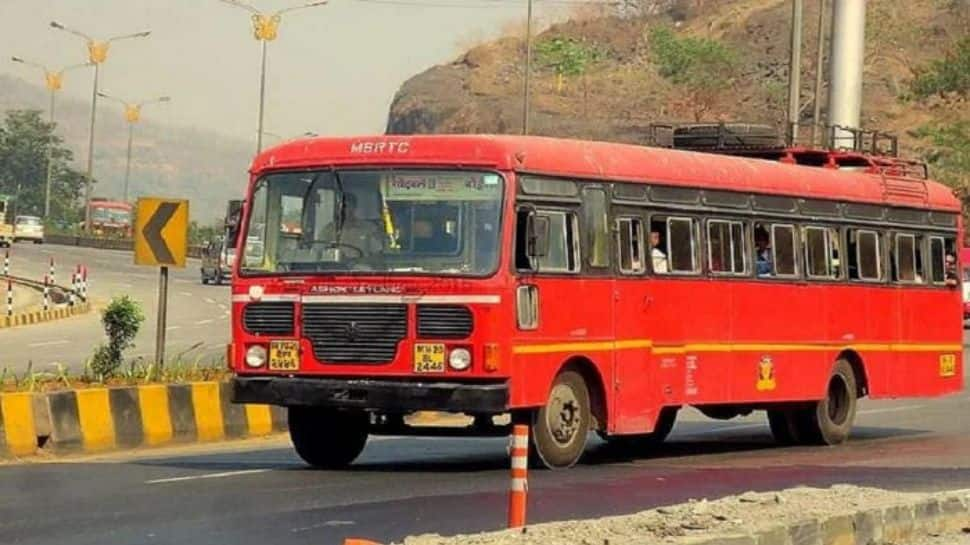 |
|
The Maharashtra State Road Transport Corporation (MSRTC) implemented a significant fare increase, impacting millions of daily commuters across the state. Effective this Friday, bus fares rose by approximately 15%, a decision reached after a meeting chaired by the Additional Chief Secretary of the Transport Department. This substantial hike affects all routes operated by MSRTC, a vast network encompassing 15,000 buses serving around 55 lakh passengers daily. The scale of this increase underscores the considerable financial pressures faced by the MSRTC, likely driven by rising operational costs, including fuel prices and maintenance expenses. The long-term consequences of this fare hike remain to be seen, particularly its impact on lower-income commuters who rely heavily on public transportation. The government's justification for this steep increase and any measures to mitigate the burden on passengers should be closely scrutinized.
Concurrently, the Mumbai Metropolitan Region Transport Authority (MMRTA) approved a fare increase for auto-rickshaws and taxis within the Mumbai metropolitan area. The base fare for auto-rickshaws increased by Rs 3, from Rs 23 to Rs 26, while black-and-yellow taxis saw a similar increase, rising from Rs 28 to Rs 31. Furthermore, the fare for blue-and-silver AC cool cabs also experienced a significant increase of Rs 8, bringing the fare for the first 1.5 kilometers to Rs 48. These increases are expected to directly impact the daily commute of millions of Mumbaikars, adding to their already considerable transportation costs. The implementation of these revised fares is contingent upon the recalibration of meters in all affected vehicles, highlighting the logistical complexities involved in such widespread fare adjustments. The potential social and economic ramifications of these synchronized fare increases merit further investigation.
Adding to the transportation disruptions, the Western Railway implemented a three-day jumbo block from January 24th to 26th for ongoing construction work on a bridge between Bandra and Mahim. This necessitated significant alterations to train schedules, causing delays and cancellations for numerous long-distance trains. The Mumbai Central-Gandhinagar Capital Vande Bharat Express, for example, faced a schedule change, departing at 06:15 hrs instead of its originally scheduled time. Similarly, the Mumbai Central-Ahmedabad Gujarat Superfast Express and the Mumbai Central-Ahmedabad Shatabdi Express experienced rescheduled departures. The Bhusaval-Dadar Special was partially cancelled, short terminating at Borivali. These disruptions highlight the significant impact of infrastructure projects on daily commutes and the knock-on effects on passenger schedules. The long-term implications of such planned interruptions on the reliability of rail services and the experience of passengers necessitate ongoing dialogue between transportation authorities and the public.
The interwoven nature of these transportation developments reveals a complex interplay of factors. The MSRTC fare hike reflects broader economic pressures and the challenges of maintaining a large-scale public transport system. The fare increases for auto-rickshaws and taxis in Mumbai highlight the complexities of regulating the city's diverse transportation landscape. Finally, the Western Railway's block showcases the inherent challenges in balancing infrastructure development with the daily demands of a heavily reliant commuter network. The cascading effects of these independent events underscore the need for integrated transportation planning and effective communication to minimize disruption and ensure the smooth functioning of the region’s vital transport infrastructure. Further research is necessary to understand the cumulative effect of these fare increases on different socioeconomic groups and potential alternative measures to alleviate the burden on the public.
In conclusion, the combined impact of the MSRTC fare hike, the revised auto and taxi fares in Mumbai, and the Western Railway block exemplifies the multifaceted challenges faced by urban transportation systems. These events underscore the need for comprehensive, integrated transportation planning, transparent communication with the public, and careful consideration of the socioeconomic implications of transportation policy decisions. Future research should focus on developing more resilient and equitable transportation systems capable of handling both planned infrastructure improvements and unforeseen circumstances. A balanced approach that considers the needs of commuters, the financial viability of transport providers, and the overall economic health of the region is crucial for creating a sustainable and effective transportation network.
Source: MSRTC Hikes Bus Fares By 14.95%; Auto And Taxi Rates To Follow
